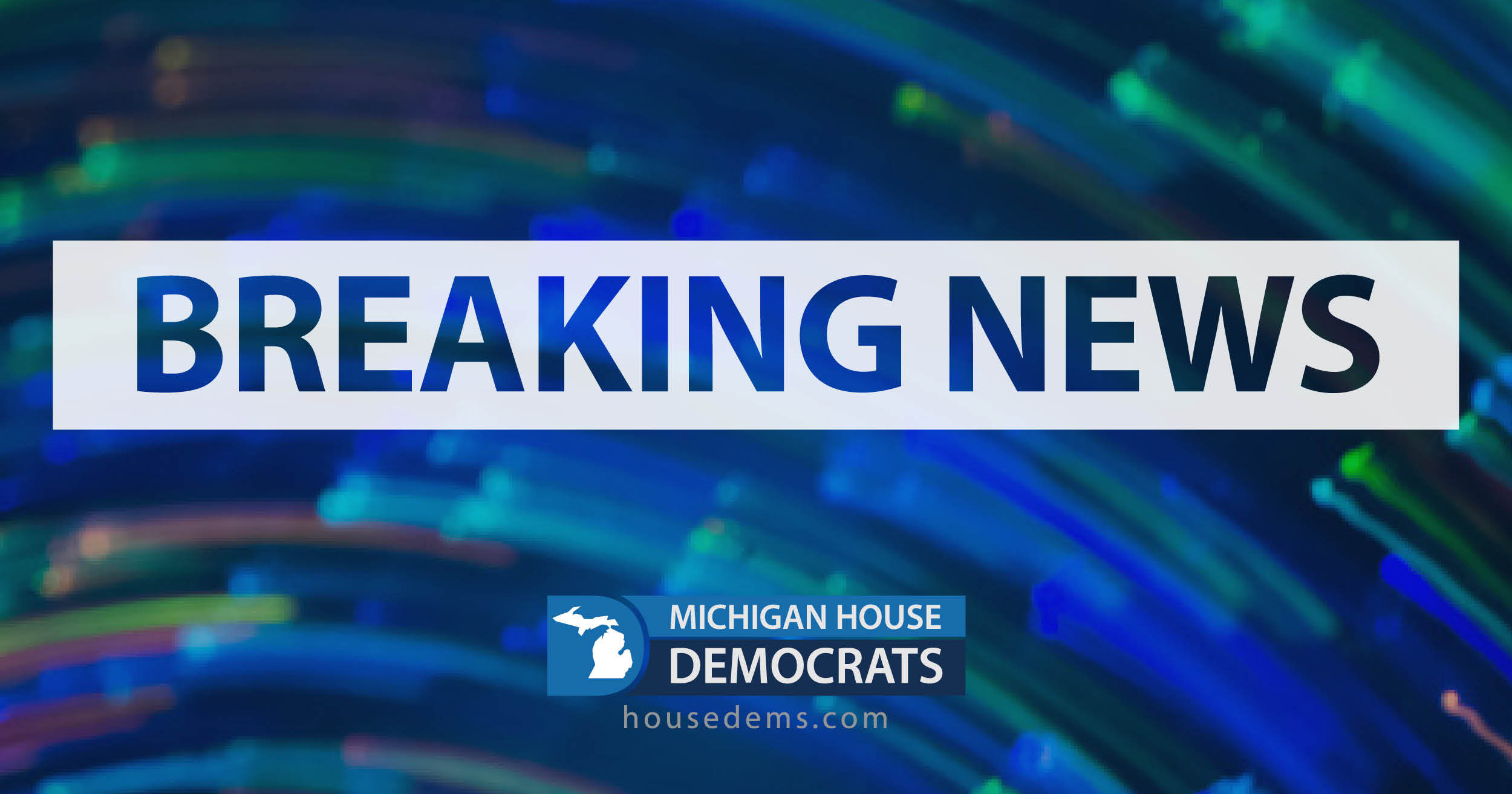- Michiganders cast approximately 1.6 million absentee ballots during Aug. 5 primary election, eclipsing the 1.27 million absentee ballots cast during the 2018 general election.
- House Democrats introduced a dozen election-related bills earlier this session, aimed at increasing access and improving our state election process.
- The legislation reflects priorities highlighted in the House Democrats’ “Michigan Strong” plan, which outlines, among other priorities, the need to protect and strengthen every Michigander’s right to vote.
LANSING, Mich. — Following a record number of reported absentee and projected in-person voting in Tuesday’s election, House Democrats renewed calls for immediate and swift action on critical elections reforms previously introduced. The sheer scope of the primary election, 2.5 million total ballots cast, shined a new light on opportunities to improve and streamline voting, highlighting the need to modernize the system and further increase access. Fast-tracking House Democrats’ legislation would ensure the trend of strong voter turnout continues while equipping elections officials to handle the increase smoothly.
Absentee ballots are expected to increase for the presidential election this fall. While it is still unknown exactly how many ballots may be spoiled due to late delivery, a substantive amount is expected. In addition to increased volume, the United States Postal Service has sustained financial losses due to the pandemic and political attacks and interference from the White House. The results are already manifesting in slower than normal mail delivery and other delays.
“As expected, our absentee requests more than doubled the amount we had for the primary election in 2016. We must take action now to ensure that every absentee ballot is counted by accepting ballots postmarked by election day and arrives within 48 hours,” said Rep. Vanessa Guerra (D-Saginaw) speaking about her bill HB 6805. “More than a dozen other states already do this, including our neighbors in Illinois. We shouldn’t penalize or disenfranchise voters for matters outside of their control. We must protect the constitutional right to vote, ensure all votes are counted and end this kind of state-sponsored voter suppression.”
House Democrats have proposed several bills to meet the moment, including: appropriating funds for high-speed tabulators for every Michigan county, allowing ballot counters to work in shifts, increasing their pay, and allowing them to begin processing ballots the Monday before the election.
Under the current law, election workers, ballot counters specifically, are required to work until all ballots are counted. Often that means working from 6 a.m. on election day to 2 or 3 a.m. the next morning. Culminating in a 20-hour or longer workday and in some counties, depending on equipment and number of ballots, ballot counters could be working even longer. In addition, election workers are expected to do all of that for minimum wage.
“The increase in voter engagement was not a surprise, and we should be better prepared to ensure our elections are efficiently conducted and ballots are counted as soon as possible,” said Rep. Kara Hope (D-Holt). “Republicans in the Legislature have been unwilling to address these common-sense fixes for months. Wanting a safe and efficient election process for every voter and election worker isn’t a partisan issue. It’s about decency and respect for those who do the hard work to keep our democracy running.”
A summary of the legislation is included below:
- HB 5985 (Kristy Pagan, D-Canton): Requires election officials to maintain a permanent absent voter list.
- HB 5986 (Pagan): Allows 16- and 17-year-olds to pre-register to vote at a Secretary of State office in tandem with obtaining their driver’s license. Under this bill, a person who pre-registers to vote will become a registered elector at 17 1/2 years of age and become eligible to vote at the first election after he or she becomes 18 years of age.
- HB 5987 (Vanessa Guerra, D-Saginaw): Counts ballots postmarked by Election Day as valid if received within 48 hours of the time polls close. Accepting ballots postmarked by Election Day is already the policy in more than a dozen other states, including Alaska, Illinois and Kansas.
- HB 5988 (Guerra): Ensures reimbursement to local municipalities for their election-related mailing costs, such as sending Voter Registration cards, Absentee Voting Applications and Absentee Voting Ballots, so long as they include pre-paid postage on all return envelopes.
- HB 5989 (Mari Manoogian, D-Birmingham): Enables city and township clerks to move polling places as soon as 15 days before an election when there is a declared state of emergency or disaster. Currently, municipal clerks may not move a polling location within 60 days before an election unless the location is damaged and physically dangerous to voters.
- HB 5990 (Abdullah Hammoud, D-Dearborn): Allows for the tolling of the 180-day signature gathering timeframe during a declared state of emergency for constitutional amendments and ballot initiatives.
- (Brenda Carter, D-Pontiac): Allows ballot initiatives and constitutional amendments to be carried over between gubernatorial elections.
- HB 5991 (Yousef Rabhi, D-Ann Arbor): Creates a procedure to notify voters and give them a chance to correct a signature problem with their absent voter ballot or ballot application. Almost a dozen other states allow voters to correct signature problems with absentee ballots.
- HB 5447 (Leslie Love, D-Detroit): Allow clerks and elections inspectors to begin processing absentee ballots the Monday before an election.
- HB 5448 (Love): Provides $3 million in additional funding to local governments to purchase high-speed tabulators and other equipment to be used for the increase in absentee ballots.
- HB 5449 (Kara Hope, D-Holt): Allow election workers to work in shifts and improve safety and efficiency for elections workers.
- HB 5450 (Hope): Allocate $1.5 million to increase the pay for current election workers or hire new election workers to meet the increased need.
###

